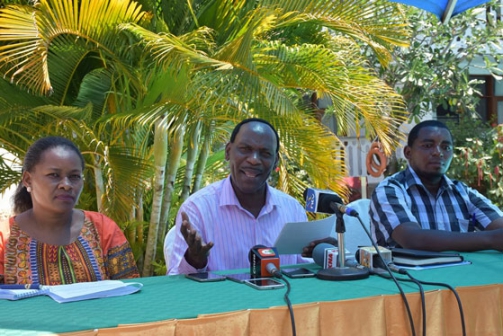×
The Standard e-Paper
Kenya’s Boldest Voice

Kenya Film Classification Board CEO Ezekiel Mutua has clarified that his team was not proposing a new law but initiating the process of reviewing the Film and the Stage Plays Act CAP 222 to align it to the Constitution and address new regulatory challenges brought by new technologies.
Dr Mutua was reacting to U.S Ambassador to Kenya Robert Godec’s comments castigating the board’s work in reviewing the CAP 222 laws of Kenya otherwise referred to as Kenya Film and Stage Plays Act.